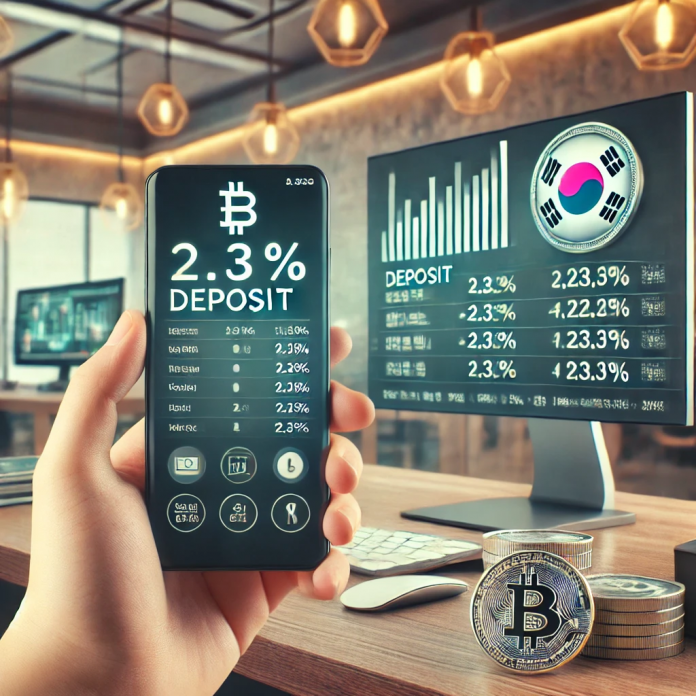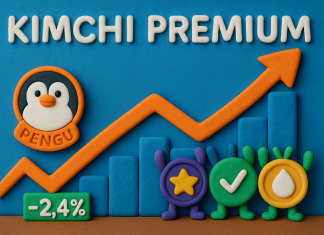
Recently, the number of users depositing Korean won (KRW) on virtual asset exchanges in South Korea to earn interest has been steadily rising. As major exchanges raise their deposit interest rates to over 2%, there is speculation that some customers who previously favored internet-only banks may have shifted to these exchanges.
Intense Competition Among Virtual Asset Exchanges Over Deposit Interest Rates
Coinone, a major South Korean virtual asset exchange, reported that since July, the cumulative number of users receiving interest on KRW deposits has exceeded 46,000. On average, over 1,000 users receive interest daily, a figure that has nearly doubled since the exchange raised its interest rate to the 2% range. Coinone initially announced an interest rate of 1.0% on July 18 but increased it by 1.3 percentage points to 2.3% on August 20.
Industry sources attribute this interest rate hike to a proactive review conducted in collaboration with Kakao Bank, which manages Coinone’s deposit funds. The new 2% range rate appears to have played a key role in attracting users, particularly when compared to internet-only banks like Toss Bank, which currently offers a 1.8% interest rate on its parking accounts. Previously, Toss Bank’s rate stood at 2.0%, but it was lowered by 0.2 percentage points in May.
High-Net-Worth Investors Pay Close Attention to Exchange Deposit Rates
A representative from a major Korean virtual asset exchange stated, “Some investors may be parking their idle funds in exchanges offering higher interest rates than banks. While the difference may seem small for small investors, the deposit interest rate can be a significant decision factor for those with larger investments and more idle funds.”
Currently, among major domestic virtual asset exchanges, Korbit offers the highest interest rate at 2.5%, followed by Coinone (2.3%), Bithumb (2.2%), and Upbit (2.1%). GoPax provides a relatively lower rate of 1.3%.
Mandatory Interest Payments Following the Enactment of the Virtual Asset User Protection Act
The recent increase in deposit interest rates is also linked to the implementation of the **Virtual Asset User Protection Act** in July. This law mandates that virtual asset exchanges pay interest on users’ KRW deposits, a practice that was previously illegal, as it was classified as a type of unauthorized financial activity.
Conclusion and Outlook
As virtual asset exchanges compete with higher deposit interest rates, competition with traditional financial institutions is expected to intensify. High-net-worth investors are likely to be more attracted to the appealing deposit rates offered by exchanges, suggesting that competition between banks and virtual asset exchanges will continue to grow in the future.






